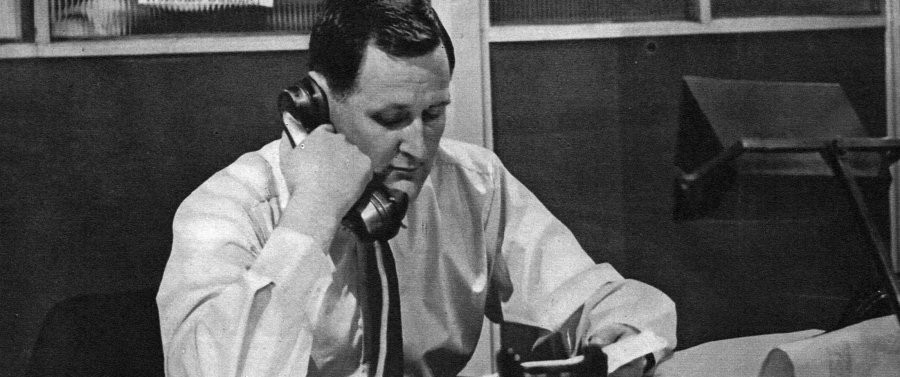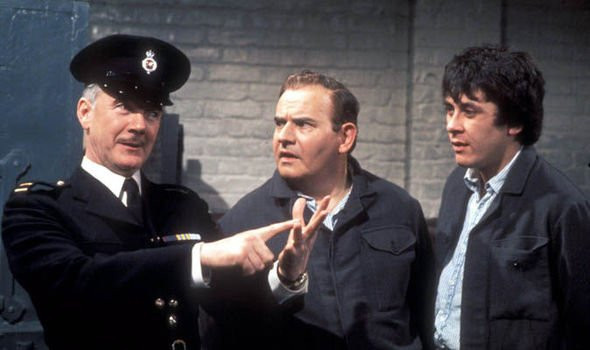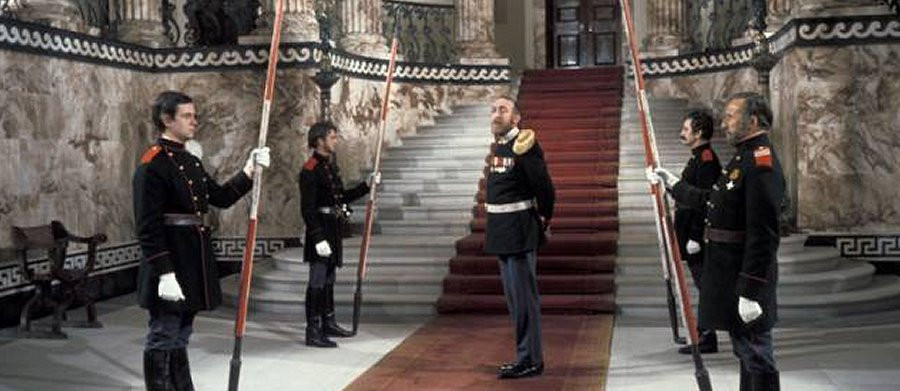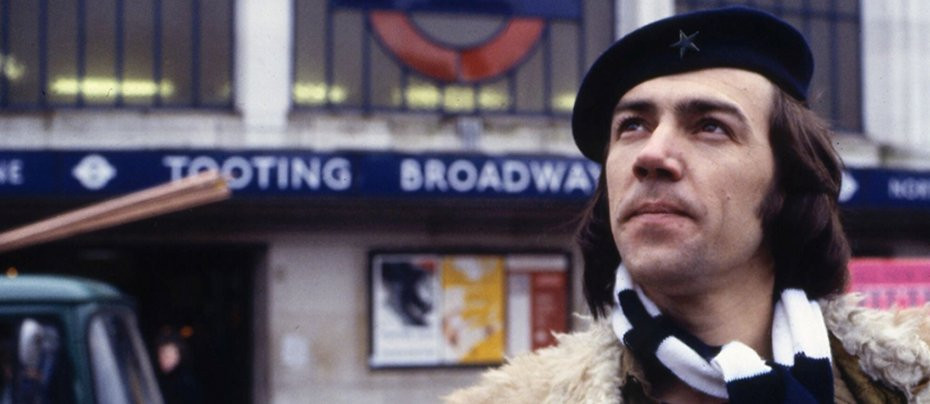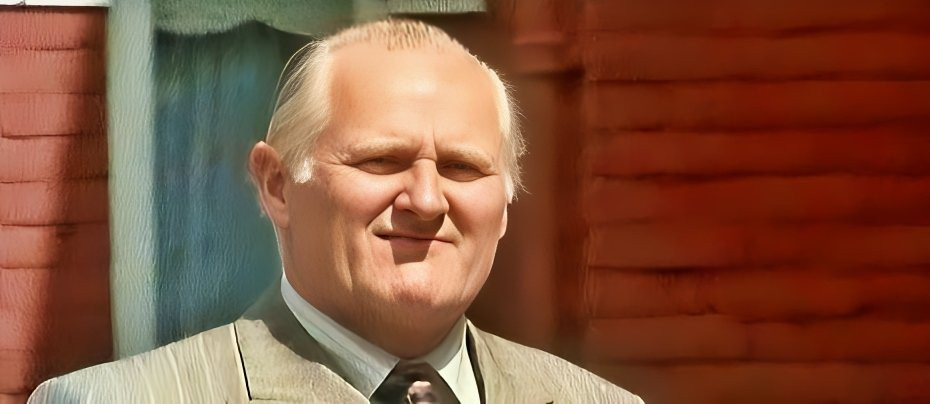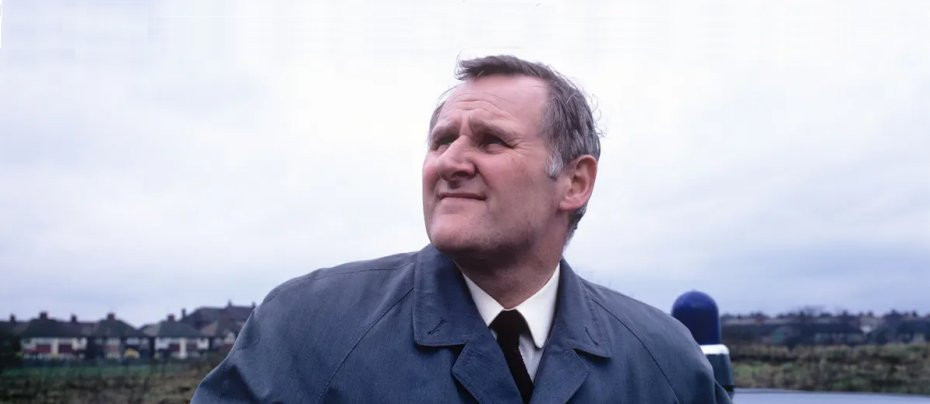
Peter Vaughan
To modern-day audiences, the actor Peter Vaughan will be remembered as Maester Aemon Targaryen in Game of Thrones. With his commanding presence and regal demeanour, Vaughan effortlessly captured the essence of the wise and aged Maester. His portrayal of Maester Aemon earned him a loyal following of fans who were captivated by his nuanced performance. To the rest of us, his role as Harry Grout in the classic sitcom Porridge, was just one memorable example of his unsavoury and intimidating figures that instilled fear into anyone who crossed their path. Porridge also showcased his comedic timing and ability to deliver memorable one-liners. Considering he only ever appeared in three of the television episodes and the one feature film, the fact that he is remembered as one of the stars of the series, is a testament to the enduring impact he made.
Peter Ewart Ohm ("like the electricity thing") was born on 4 April 1923 above a bank in Wem, Shropshire, the son of one of the bank’s clerks, Max Ohm and a nurse, Eva Wright. The family moved to Wellington, in the same county, when Peter was a youngster, and it was here that he began his schooling. It was whilst reciting a poem to his class that he first experienced the applause and admiration of an appreciative audience. From the age of seven he lived in Staffordshire, where he attended Uttoxeter Grammar School.
“However, there was a drama coach in the county who must have seen something in me because she coached me and then got me across for an interview and I got the part of Smith the pie boy in Sweeney Todd!
After leaving school, Peter joined the Wolverhampton Repertory Theatre playing Simon the pie-boy in Sweeney Todd in 1939. Acting wasn't his first passion though. He dreamed of playing football for Stoke City. "But when I realised I wasn't going to make it into the professional ranks I started looking for something else to do." He later recalled that “there was a drama coach in the county who must have seen something in me because she coached me and then got me across for an interview and I got the part.” At that time, he had adopted the stage name of Peter Vaughan.
During the Second World War, Vaughan (under the name Ohm as he never officially changed it) was a second lieutenant in the Royal Corps of Signals and served in Normandy, Belgium, and the Far East. At the end of the war, Vaughan was in Singapore during the liberation of Changi Prison.
After the war, Vaughan returned to Wolverhampton rep, followed by seasons in Macclesfield, Leicester and the Birmingham Rep, where he played Algy to John Neville’s Jack, Lally Bowers’s Lady Bracknell and Donald Pleasence’s Canon Chasuble; he and Pleasence became lifelong friends.
In 1952 he met the actress Billie Whitelaw, nine years his junior, while playing in a London fringe theatre and they were married that same year.
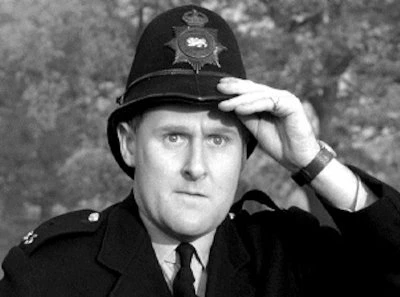
Vaughan made his screen debut in 1954 in an uncredited role as a police officer in Fatal Journey, an episode of the Scotland Yard series introduced by Edgar Lustgarten. Throughout the 50s Vaughan kept busy in theatre and he appeared with Donald Wolfit in The Strong Are Lonely, an Austrian play about Jesuits in Paraguay, at the Haymarket in 1955, and a French comedy, Paddle Your Own Canoe, at the Criterion in 1958. The critic Harold Hobson lauded Vaughan’s performance and said that the play never recovered after his exit.
His television appearances became more frequent in the 1950s, albeit in small or guest roles and it wasn’t until 1960 that he won his first regular role in Deadline Midnight, a series set in the newsroom of a fictional newspaper. That was followed by a BBC series titled A Chance of Thunder before he went on to play Bill Sikes in the BBC’s adaptation of Oliver Twist in 1962.
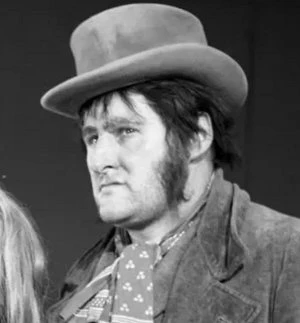
His next big break came when the actor Dudley Sutton introduced him to the playwright Joe Orton in a theatrical drinking bar. Orton was scouting for a heavyweight heterosexual actor to play Ed, an ordinary-looking man who was interested in having sex with boys, in his forthcoming play, Entertaining Mr Sloane (1964).
Vaughan played the first of police chiefs in John Paddy Carstairs’s The Devil’s Agent (1962), followed by the Boulting Brothers’ Rotten to the Core (1965), with Anton Rodgers and Eric Sykes and a British agent in The Naked Runner (1967), with Frank Sinatra. He described most of his many film and TV appearances as enjoyable in a Sunday Post article in 2016, but the troubled production of The Naked Runner, proved difficult and Frank Sinatra didn’t help. “At that time, he (Sinatra) was the No 1 highest-paid professional entertainer of all, and it was great for me to have that part. The two of us were the two leading roles.” He said. “Frank didn’t suffer fools - or anyone - gladly. He’d turned up with his new wife Mia Farrow and fell out with the paparazzi, and said: ‘OK, if that’s the way it is, I’m off’ and he went home. I rewrote the last scene to give my character Frank’s lines, played it and that’s how The Naked Runner ends - Frank did a runner!”
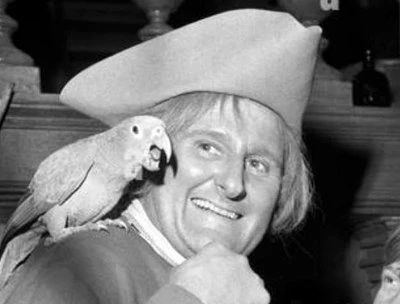
In 1968, Vaughan played the role of Long John Silver in the BBC’s nine-episode adaptation of Treasure Island and the following year he was cast as Detective Chief Superintendent Cradock in the compelling LWT-produced series The Gold Robbers, which was nominated for a BAFTA in the Best Drama Series category. In 1975, Vaughan got the rare chance to play a comedic figure. “I more or less accidentally turned up in something special. I was in a play and they asked me to do Porridge, and it was very nice to be able to do something in the daytime and then go back and do the play at night. Had I not been in the play, I wouldn’t have done it as there weren’t enough episodes to make it financially worthwhile and it would have clashed with more lucrative work. But the scripts were brilliant and I loved the part.” He wasn’t the only one. Years later he was still being identified with it. “I still get people saying: ‘Let you out, have they, Grouty?,’” Genial Harry Grout was the villain who seemingly ran Slade prison. “I was in just three episodes and, of course, the feature film, so I have to thank the writers Dick Clement and Ian La Frenais for the fact I’m one of the characters people always remember when they talk about Porridge because Grouty is so prominent — even though I’m not there. Everybody’s frightened to death of him, so they talked about him a lot and so it was a huge character but I didn’t have to be there.”
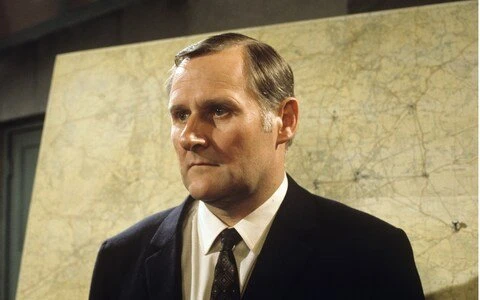
In 1977, Vaughan got another chance to play in a popular sitcom when he was cast in John Sullivan’s debut TV series Citizen Smith. Although he didn’t appear in the pilot episode, when Citizen Smith went to a full series he replaced Arto Morris as the father of Wolfie Smith’s girlfriend Shirley (Cheryl Hall). And in the 80s, he was equally memorable as another, less amusing character, Billy Fox, in Trevor Preston’s series Fox, produced by Verity Lambert for Thames TV. Vaughan lorded it over ‘his manor’ as ‘Mr. Big’, with his wife, played by Elizabeth Spriggs, and five sons, including Bernard Hill Larry Lamb, and Ray Winstone.
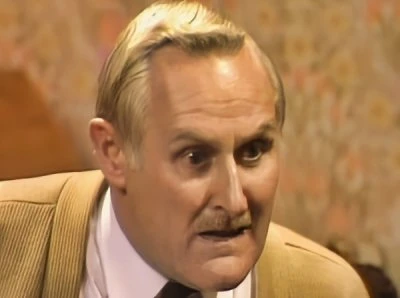
Peter Vaughan continued to turn up in memorable appearances on television throughout the 1980s and 1990s, captivating audiences with his presence, none more so than in Our Friends in the North (1996). He called it his greatest TV experience. “Chris Eccleston, who played my son, and I just hit it off perfectly and we still are great buddies. But the great thing about it from my point of view was being able to show people the terrible Alzheimer’s Disease. As Felix, over the course of four decades, I was able to go from a hard nut right the way through the various stages of that illness and it was really the first time it had been brought seriously to notice. It was a great privilege to play that part, it blazed the trail. And, my God, what a cast! Chris, Daniel Craig, Mark Strong, Gina McKee — it would cost quite a few bob to assemble that cast now. Apart from me, of course, I’m very cheap!” Many people would consider Felix his finest performance.
Although he often portrayed unpleasant authority figures, instilling fear into anyone who crossed their path, it is worth noting that despite his on-screen persona, Vaughan was beloved for his warm-heartedness, compassion for animals, and unwavering dedication to his family. His marriage to Billie Whitelaw ended in 1966 he married Lillias Walker who brought up their son and Peter’s two stepdaughters in Crawley where they lived at Goffs Manor for 20 years before retiring to Mannings Heath near Horsham, Sussex.
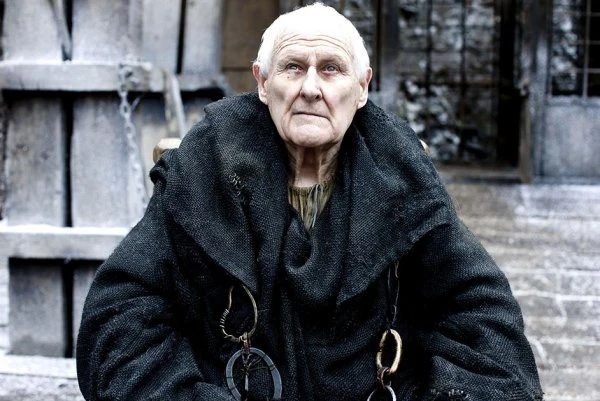
In his last job, Peter Vaughan attracted a cult following as Maester Aemon Targaryen in HBO’s Game of Thrones. He played the centenarian blind sage, maester (by which time Vaughan was partially blind himself) to the men of the Night’s Watch guarding the ice wall at Castle Black, for five seasons.
Peter Vaughan passed away peacefully from natural causes on 6 December 2016, aged 93 years. He will forever be remembered as an acting icon, a man with an extraordinary talent and an infectious joy for life. With his powerful performances, he captivated hearts, brought laughter to millions, and touched the souls of all who watched him. His journey may have come to an end, but his impact will continue to be felt for generations to come. As we celebrate his life and achievements, let us remember him with warmth and gratitude for the joy he brought us all
Published on January 8th, 2024. Written by Laurence Marcus for Television Heaven.


